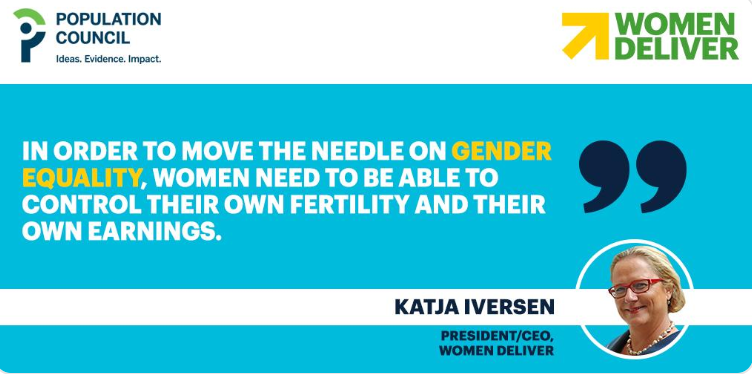Hurdles 4 SDG 5: Majority of women lack sole control of their earnings: Study
The findings are based on 43 countries of the world representing 600 million women of the world.

Almost all women work but a few of them earn while fewer have sole control of their earnings. Besides, those married or cohabiting before the age of 18 years are facing the worst for they lose control on their reproductive rights as well which adversely affect their work, earning and sole control on the earnings. These finding of a study were presented on the concluding day of the Women Deliver 2019 - the largest ever conference on Gender Equality included as SDG 5 in the SDGs 2030; at Vancouver, Canada on June 6.
These problems are not specific to any particular country, region or continent of the world but spread throughout the globe. The conclusions were made in a study conducted by the Population Council and Women Deliver, by using the newest available DHS data (2012-18) from 43 countries and included all women between 20-49 years’ age group, revealed a strong and consistent lifelong negative association between giving birth before age 18 and a women’s economic empowerment. The study was revealed in Women Deliver 2019 Conference on June 6, at Vancouver, Canada.
According to the study in the majority of countries studied, most women work; however, whether they are paid for their work or not varies widely, as does their ability to control their earnings. In Togo, for example, among married and cohabiting women, most work (86 per cent), earn cash (62 per cent) and retain control of their earnings (57 per cent). In contrast, the vast majority of married and cohabitating women in Burundi work (94 per cent), but just 16 per cent earn cash and 4 per cent retain sole control over their earnings. The data and findings, claim researchers, represent 600 million women of the world.
“The ability to earn and control cash represents more than just earnings—it influences a woman’s ability to make strategic life choices,” said Stephanie Psaki, PhD, deputy director of the Population Council’s Girl Center. “This is one of the first studies to show consistently across so many countries and settings that having a child early can impact future earning potential.” The study also revealed that despite global declines in the rates of adolescent childbearing in the last 25 years, the study found that it remains common in many low- and middle-income countries, particularly in Sub-Saharan Africa where in nearly a dozen countries at least 30 per cent of women have a child before age 18. “The women (ages 20–24) who have a child before age 18 are more likely to be employed in the short term; however, they are less likely to earn cash in the short-term and throughout their reproductive lives,” said Katja Iversen, President/CEO of Women Deliver. He further added, “In order to move the needle on gender equality, women need to be able to control their own fertility and their own earnings. We need societal investment in access to modern contraception, safe abortion, and comprehensive sexuality education, as well as in expanding economic opportunities for all girls and women.”










